Considered the national dish by many, musakhan is among the dearest and most traditional of dishes in the Palestinian kitchen. It exists elsewhere too, mostly brought there by Palestinian refugees. But nowhere does it have the same significance as in Palestine.
So what is musakhan?
Musakhan is a dish of chicken served on a caramelised onion bread, flavoured with sumac and extra virgin olive oil. While often (correctly) described as a chicken dish, it’s sumac and olive oil that gives the dish its unique signature.
Historically, musakhan was served towards the end of the year, shortly after the olive harvest. Why? Because making the sumac onions requires copious amounts of fruity olive oil. Only the best olive oil from the first press would do.
This makes musakhan a masterclass in how olive oil can be a substantial ingredient in its own right, not just a vehicle for sautéing another.
The combination of onion and sumac is well known, but it works even better with onions that have been cooked in copious amounts of fruity olive oil until sweet and slightly caramelised. The resulting sweet, sour and savoury is simply irresistible when spread on flatbread and grilled.
A few tips for making musakhan
Olive oil
If it’s not clear already, make sure to use a good quality olive oil. A fruity extra virgin olive oil is best.
Some may jump at both quantity suggested, or the use of extra virgin for cooking. Let me assure you that both are correct.
In Mediterranean food cultures, cooking with extra virgin olive oil is very common. It’s also perfectly safe – extra virgin olive oil is in fact one of the best oils for cooking.
I personally use extra virgin olive oil for nearly all of my cooking. It makes the food taste better, but the biggest impact is probably on texture. If your olive oil is good, it’ll never feel greasy, even if you use a lot of it. Rather, it’ll make the food even more delicious and wholesome.
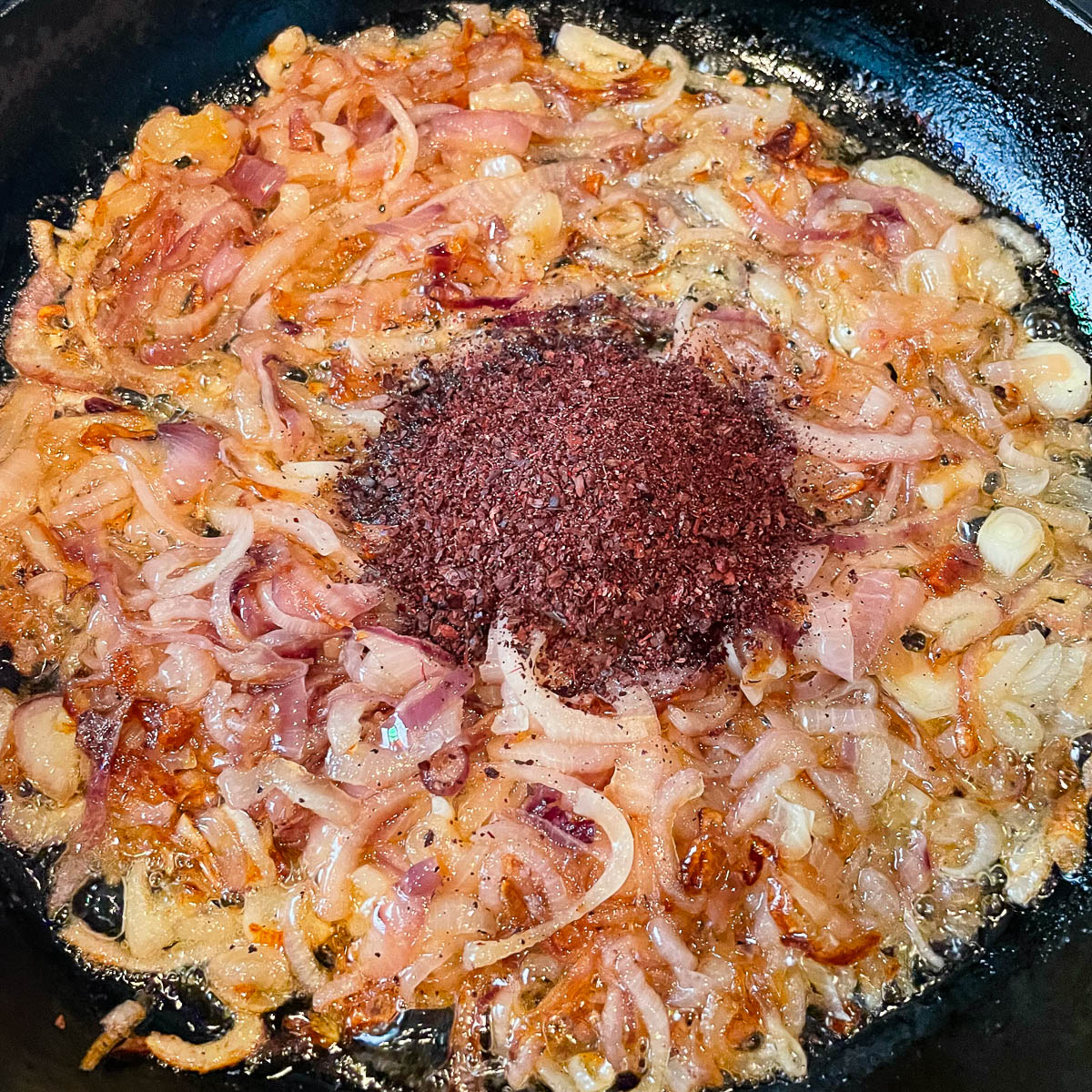
The onions
Make sure to cook the onions for long enough that they’re sweet, soft and slightly caramelised. Keep an eye on the heat. It should be low enough that they don’t burn. If it looks like your pan is getting a little too hot, add a splash of water. It’ll quickly evaporate, but lowers the temperature of your pan and keeps your onions from burning.
The bread
In Palestina, a type of taboon bread is especially made for musakhan. It’s slightly higher at the edges than in the middle, perfectly accommodating the onion mixture.
Rest assured you can perfectly well use any soft and fairly thin flatbread here. A thin version of lavash is perfect, but pita is also fine (feel free to split them, so you have two thin pieces rather than one thick).
Don’t skip the last step of placing the flatbreads under the broiler. It makes all the difference! I could eat those breads on their own.
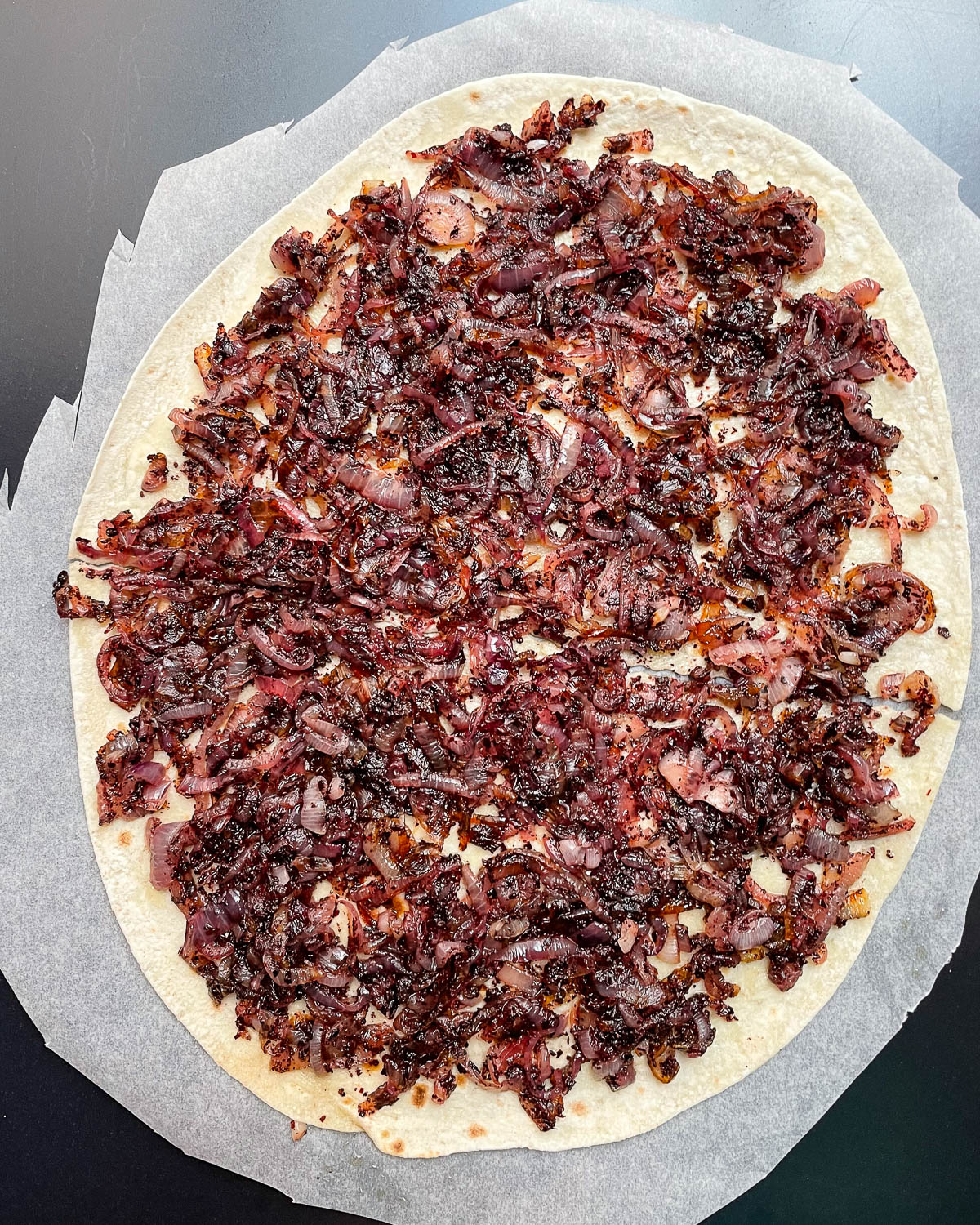
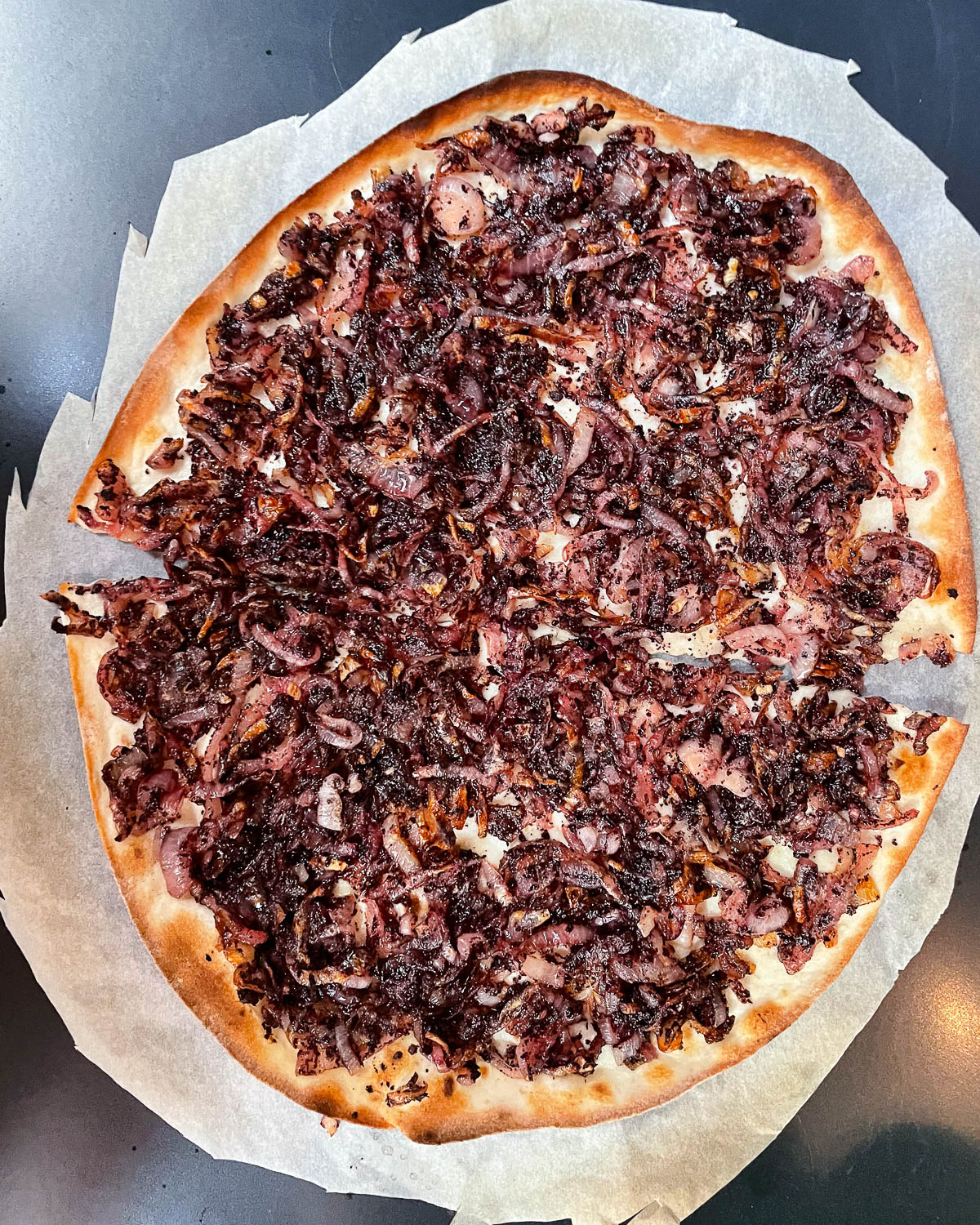
The chicken
As for the chicken, it can be prepared in a myriad of ways.
Most recipes use a whole chicken. As a household of two, I opt for chicken legs. Some boil the chicken first, then grill it. Others braise it in a pan. Many prefer the oven. Some marinate the chicken with spices, others are happy with just salt.
My personal preference is to cover the chicken with a spice mix and roast it. It’s easiest and, in my view, yields the best flavour.
A note on the recipe and Palestinian cooking
I’ve never had the chance to visit Palestine myself, but have based my version of musakhan on a number of cookbook authors with Palestinian background, including Sami Tamimi, Reem Kassis and Joudie Kalla. For more Palestinian cookbook tips, have a look at this roundup by Sami Tamimi on Instagram.
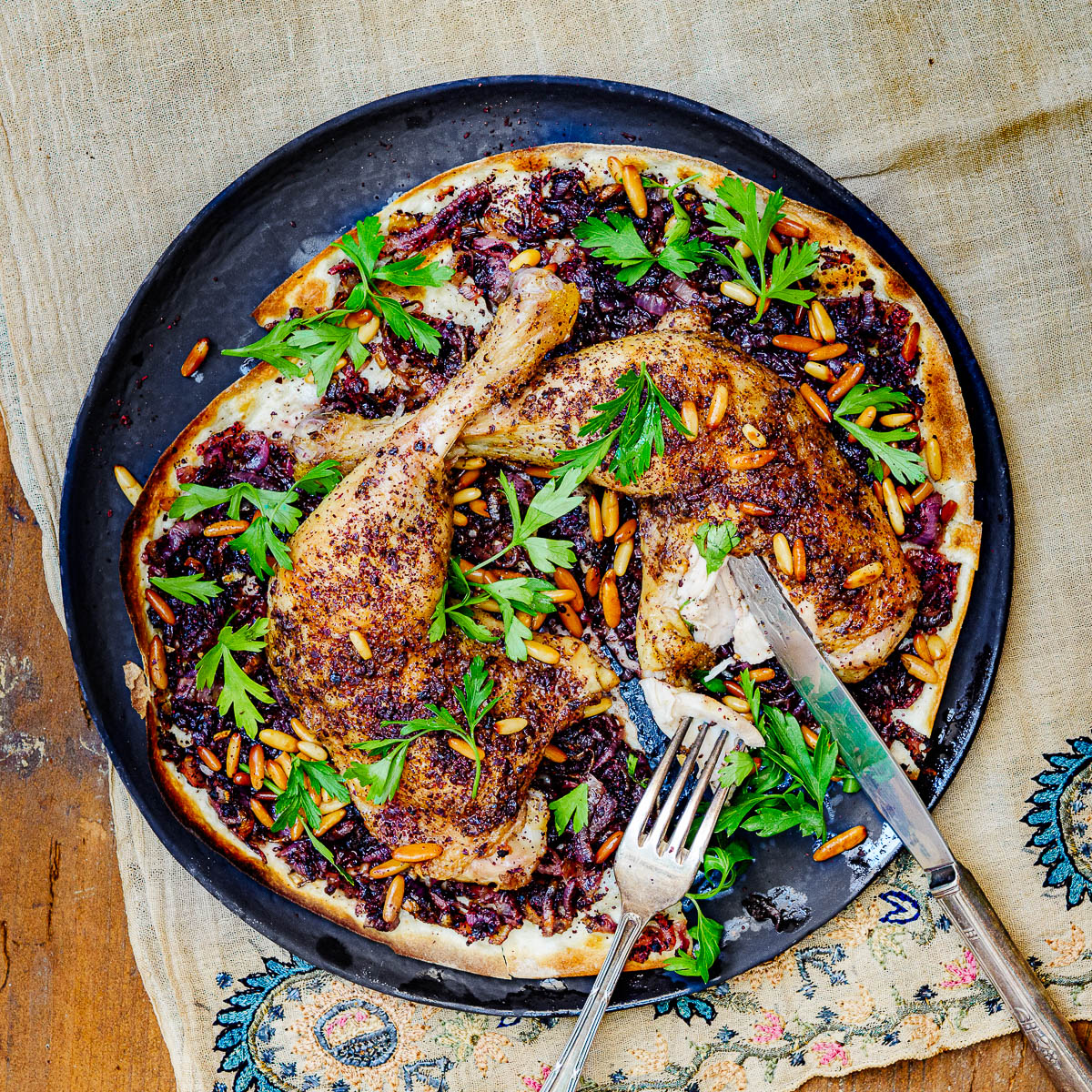
Serving suggestion
I hope you’ll make it – this is simply too good to miss. A simple salad alongside goes a long way, but feel free to start the meal with a few mezes, if you’re making more of an occasion out of it.
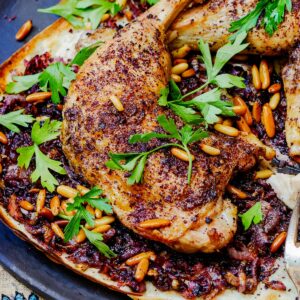
Musakhan (Palestinian chicken with sumac onion flatbread)
Ingredients
- 2 Tbsp olive oil, I use a mild extra virgin
- 1 tsp sumac
- ½ tsp ground cumin
- ¼ tsp ground allspice
- 1 pinch ground cinnamon
- 2 chicken legs, with skin and bone, or skin-on breast or ½ chicken
- salt and pepper
Sumac onion flatbreads
- 75 ml extra virgin olive oil, fruity type
- 3 medium red onions, finely chopped
- 2 Tbsp sumac
- 2–4 lavash, pita bread, wheat tortillas or similar
- salt
Garnish (optional)
- 1 Tbsp extra virgin olive oil, fruity type
- 2 Tbsp pine nuts
- 1 small handfull flat-leaf parsley, leaves
- 1–2 tsp sumac
How I make it
- Preheat the oven to
220 °C. Line a baking sheet with parchment.
- Mix the olive oil, sumac, cumin, allspice and cinnamon with a little salt and pepper, then coat the chicken with the mixture all over. Transfer to a suitable oven dish. Roast in the middle of the oven until the chicken is cooked through and the skin is golden, typically 35–45 minutes, depending on size. Brush with the fats/juices a couple of times during cooking. Cover with parchment paper and a kitchen cloth and leave to rest for 10 minutes or so.
- As soon as the chicken is in the oven, heat a thick-bottomed frying pan over medium heat. Sauté the onions with a pinch of salt in fruity olive oil, stirring regularly, until sweet and starting to caramelise. Mix in 2 Tbsp sumac and remove from heat.
- Heat a small pan over medium heat. Toast the pine nuts in 1 Tbsp olive oil, stirring constantly, until just golden, 2–3 minutes. Drain on kitchen paper.
- Set your oven's grill/broiler to a high setting.
- Line a baking sheet with parchment paper. Place the bread on it and spread the onion mixture evenly all over. Note: There’s a lot of onion here – use as much as you like and optionally serve the rest on the side if you find it too much. Cut off excess parchment paper (this is to avoid it curling up and burning). Place directly under the grill/broiler and leave until golden and crispy at the edges, 2–3 minutes. Watch closely – it could go from not ready to burned very, very quickly.
- Serve the sumac onion bread topped with the chicken, a few spoonfuls of chicken juices from the roasting dish, pine nuts, parsley and a fresh sprinkle of sumac.


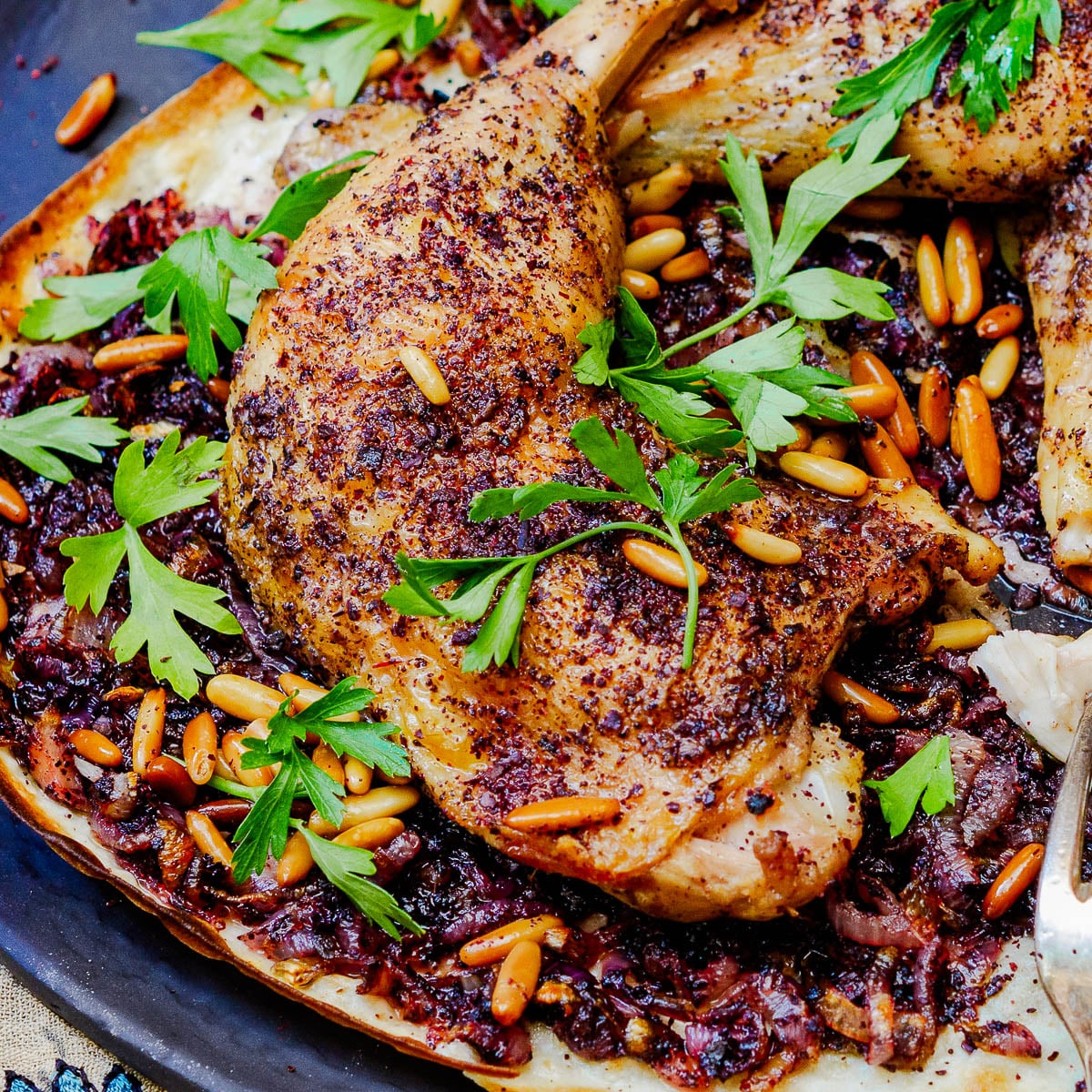


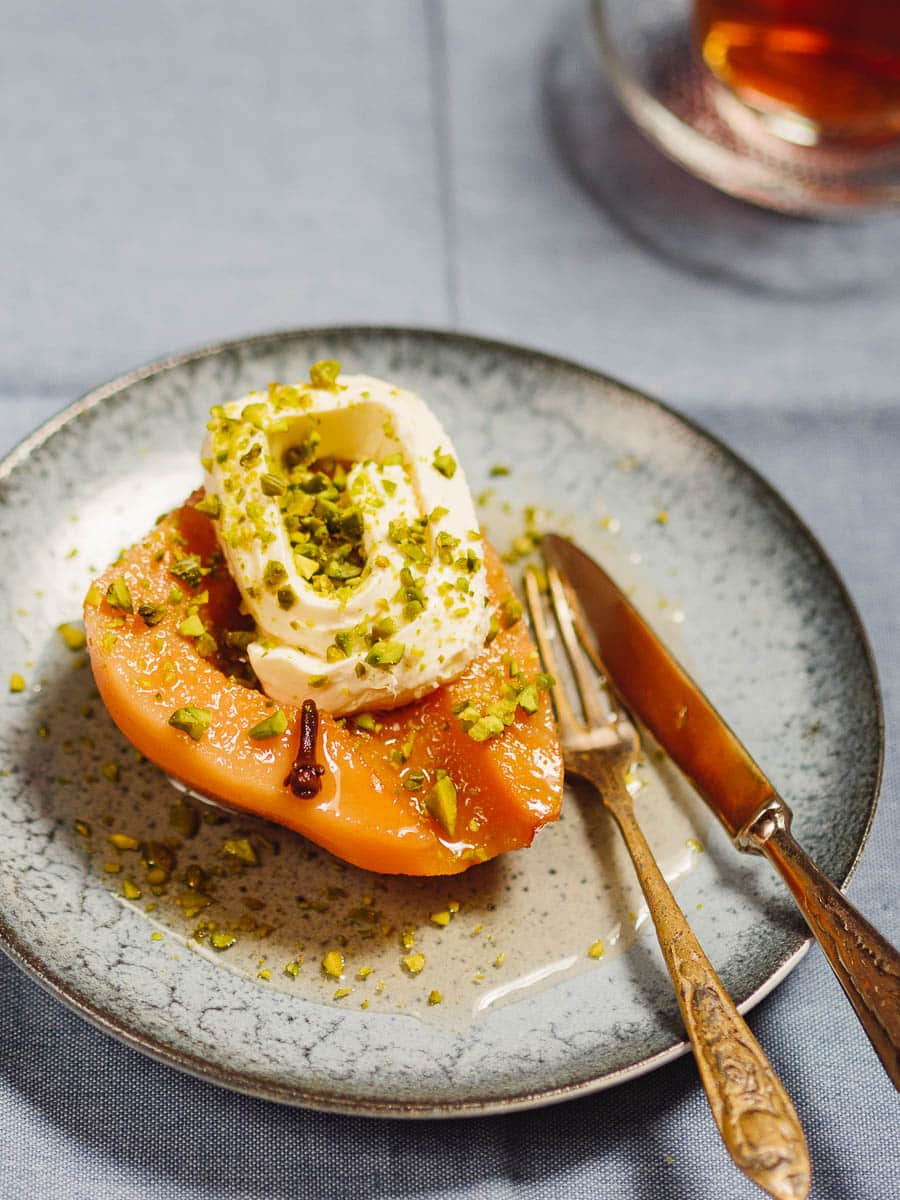
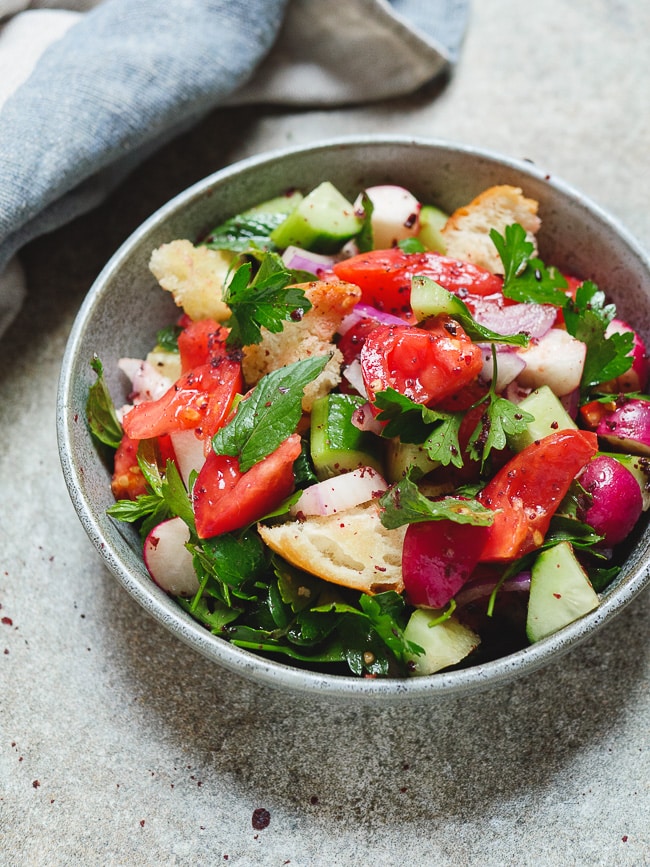
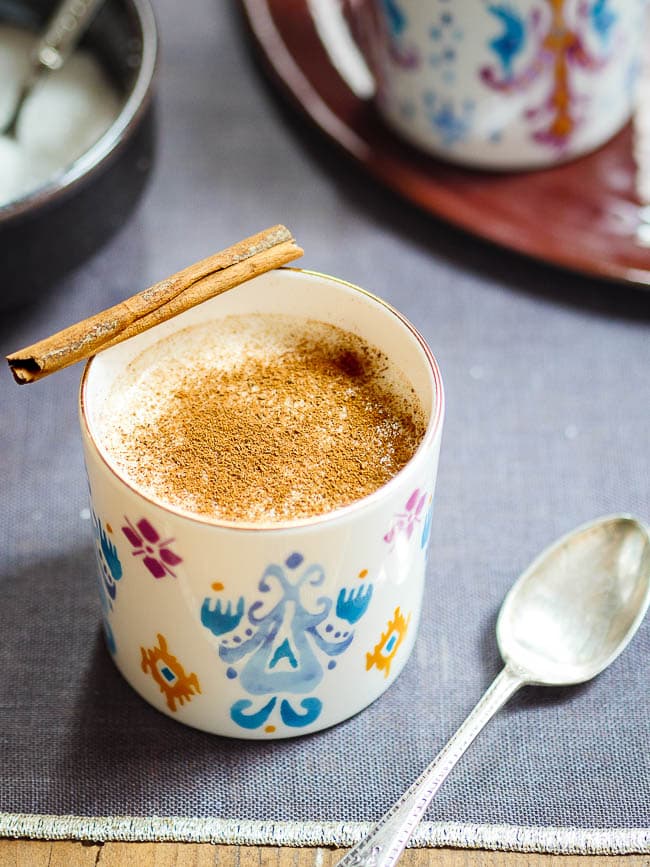
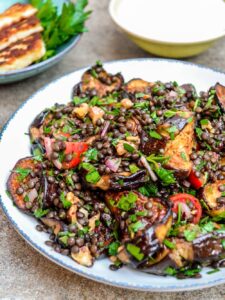
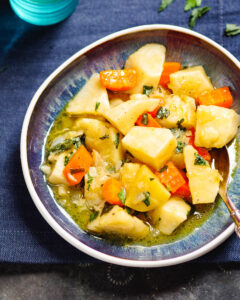
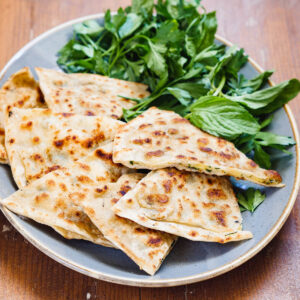
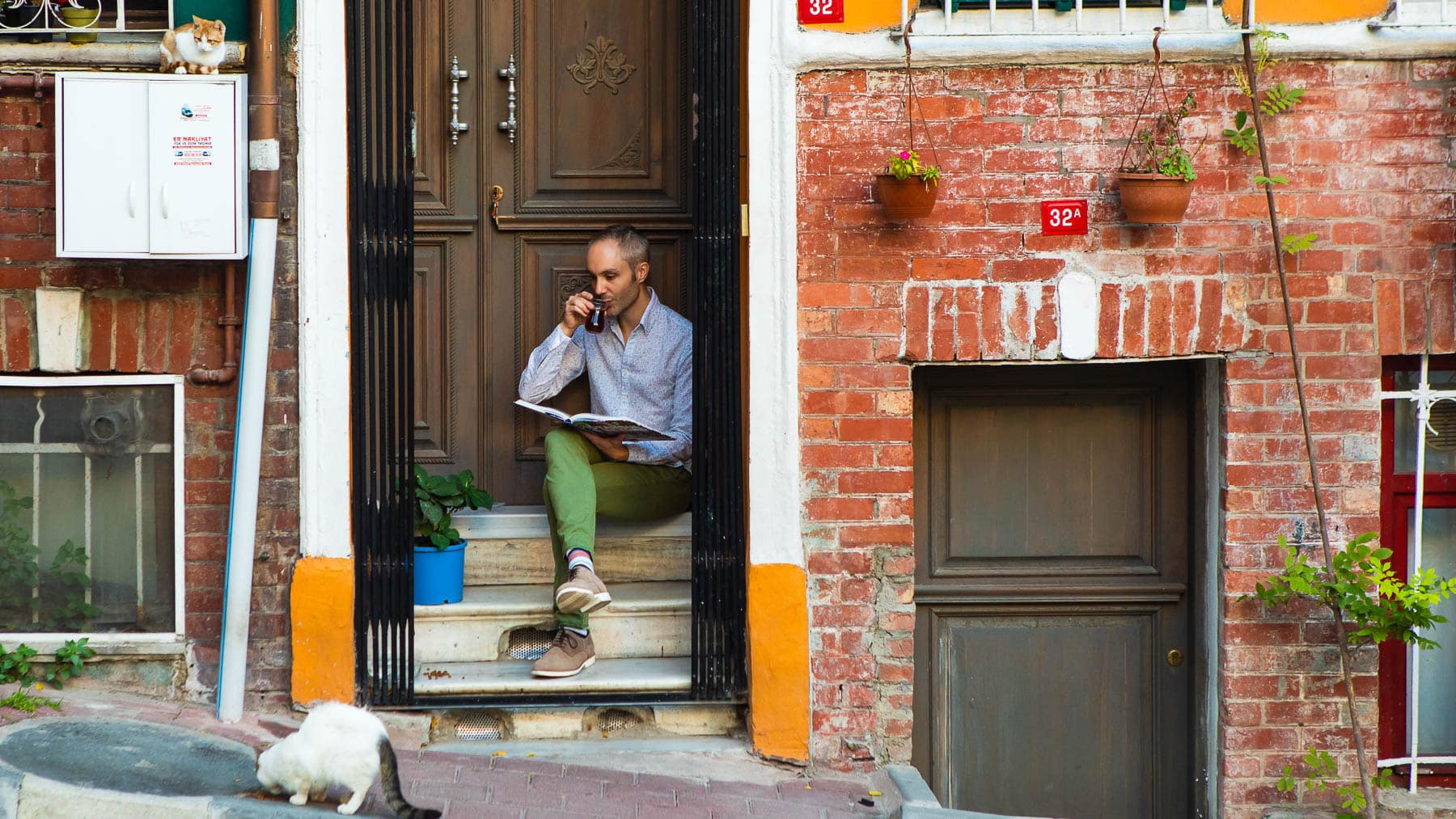



One Response
This was amazing! I used skin-on bone- in chicken thighs instead of drumsticks but they still worked brilliantly (if not better!). I doubled the recipe for four of us, but even still no way was there too much onion! Just sad that lifting the final grilled bread and onion out of the oven the baking paper underneath slid and I lost much of the onion! I’m coeliac so needed to have a gluten free flatbread. I used 10” GF tortillas and they worked very well in terms of crispness around the edge but it would not have been easy to pick the whole thing up and eat it in a more traditional manner! The four of us (3 generations of Aussies) loved it and I’ll definitely do it again (taking more care taking the toasted bread and caramelised sumac onions out of the oven next time!!!).